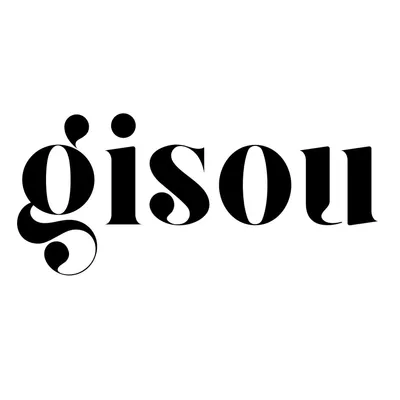
Gisou
Learn more about our scoring →
About Gisou
Gisou represents a distinctive positioning in the haircare market, leveraging authentic Dutch beekeeping heritage to create honey-infused formulations that bridge traditional apiary wisdom with contemporary hair wellness. The brand's core differentiator lies in its family-owned Bee Garden sourcing model, which provides traceability for key ingredients while supporting the narrative of generational beekeeping expertise that founder Negin Mirsalehi has cultivated into a global beauty phenomenon.
Sustainability performance reveals a brand committed to environmental responsibility within its operational capacity, particularly through carbon-neutral manufacturing powered by solar energy and comprehensive packaging innovation initiatives. The company demonstrates genuine progress in climate action and material waste reduction, though gaps remain in supply chain transparency and third-party verification systems that would elevate industry confidence in broader sustainability claims.
As an independent company founded in 2015, Gisou maintains direct control over its sustainability trajectory without the constraints or resources of larger corporate ownership structures. This independence enables nimble decision-making around environmental initiatives while potentially limiting access to comprehensive certification programs and auditing resources that characterize more established sustainable beauty leaders.
The Good Stuff
Where Gisou appears to be making meaningful progress. We cross-referenced these findings with multiple independent sources.
Solar-Powered Carbon-Neutral Manufacturing
Manufacturing operations achieve carbon neutrality through comprehensive solar energy infrastructure, demonstrating genuine commitment to climate action beyond industry standard practices
Generational Bee Garden Sourcing Heritage
Honey and propolis ingredients sourced from family-owned Bee Garden with authentic multi-generational beekeeping practices, providing ingredient traceability and heritage authenticity
Comprehensive Packaging Innovation Initiative
Systematic transition to FSC-certified paper, biodegradable sachets, and recycled materials with strategic downsizing to minimize environmental packaging impact
The Reality Check
Areas where the publicly available data gets murky, incomplete, or concerning. We're transparent about the limitations of our analysis.
Third-Party Cruelty-Free Verification Absence
Animal testing policies lack independent certification or comprehensive supplier verification protocols, relying on brand claims without external audit validation
Ingredient Safety Documentation Gaps
Green chemistry standards and ingredient safety protocols lack disclosed policies, independent verification, or comprehensive chemical responsibility frameworks
Supply Chain Transparency Limitations
No publicly disclosed independent supply chain audits or recognized ethical sourcing certifications beyond brand sustainability promise statements
Gisou's
Impact Aura
A visual representation of Gisou's positive impact
across People, Planet and Animals
Each colored area represents the brand's performance in that sustainability category. The size and intensity of each blob corresponds to their score—larger, more vibrant areas indicate stronger performance.
Our Research
Key findings from our comprehensive analysis of Gisou's sustainability performance across People, Planet & Animals impact.
Positive Impact on People
Research Highlights
- External expert guidance supports greener formulation development initiatives
- Marketing integrity demonstrates authentic Mirsalehi bee heritage with traceable honey sourcing
- Community education initiatives include bee awareness campaigns and flower seed distribution
- Transparency promise updates show commitment to sustainability communication
- Labor practices and supply chain auditing lack independent third-party verification
Evidence Strength
Strong marketing transparency and community engagement documentation, limited verification for labor standards and supply chain practices
Positive Impact on Planet
Research Highlights
- Carbon-neutral manufacturing facility powered entirely by solar energy infrastructure
- Packaging innovation includes FSC-certified paper, biodegradable sachets, and recycled materials
- Bee-centered practices support ecosystem awareness through seed campaigns and educational outreach
- Water waste reduction efforts at manufacturing sites lack disclosed metrics or reporting
- Green chemistry formulation claims require independent policy documentation and verification
Evidence Strength
Excellent documentation for climate action and packaging initiatives, gaps in water stewardship and chemical responsibility verification
Positive Impact on Animals
Research Highlights
- Honey and propolis sourced from family-run Bee Garden with generational beekeeping practices
- No animal testing claims lack independent certification or supplier verification protocols
- Non-vegan formulations intentionally incorporate bee-derived honey and propolis ingredients
- Bee garden expansion initiatives support pollinator education and ecosystem awareness
- Community awareness campaigns demonstrate bee conservation commitment without formal funding partnerships
Evidence Strength
Moderate sourcing documentation with authentic heritage story, limited third-party verification for cruelty-free policies and conservation support
See the Receipts
We don't just make claims—here are the official certifications that prove Gisou's sustainability commitments.
Frequently Asked Questions
Is Gisou sustainable?
Live By's assessment reveals Gisou demonstrates strong environmental performance in specific areas, particularly carbon-neutral manufacturing and packaging innovation. The brand shows genuine commitment to sustainability through solar-powered operations and comprehensive material waste reduction initiatives, though gaps remain in supply chain transparency and third-party verification systems.
Is Gisou cruelty-free?
Gisou claims products have never been tested on animals and avoids markets requiring animal testing, but lacks independent certification from recognized cruelty-free verification organizations. The brand's animal welfare stance relies on internal policies without comprehensive supplier verification protocols.
Are Gisou products vegan?
No, Gisou products are intentionally non-vegan, incorporating honey and propolis derived from bees as core ingredients. The brand's identity centers on bee-derived components sourced from their family-owned Bee Garden, making vegan formulation incompatible with their product philosophy.
What makes Gisou environmentally friendly?
Gisou's environmental credentials include carbon-neutral manufacturing powered by solar energy, FSC-certified packaging materials, and biodegradable packaging components. The brand demonstrates carbon consciousness through renewable energy infrastructure and packaging innovation initiatives that reduce material waste.
Does Gisou support bee conservation?
Yes, Gisou supports bee awareness through community education initiatives, flower seed distribution campaigns, and bee garden expansion projects. However, the brand lacks formal conservation funding partnerships or documented habitat restoration programs beyond awareness-building activities.
How sustainable is Gisou's packaging?
Gisou has implemented comprehensive packaging innovation including FSC-certified paper, biodegradable sachets, recycled materials, and strategic downsizing to minimize environmental impact. These initiatives position the brand as a packaging innovator within the beauty industry.
What certifications does Gisou have?
Gisou currently lacks major third-party sustainability certifications, operating without independent verification from recognized environmental or ethical certification organizations. The brand relies on internal sustainability promises and self-reported environmental initiatives rather than external audit validation.
Ready to Shop Gisou?
Find Gisou products through our trusted retail partners
The Bottom Line
Gisou demonstrates authentic environmental commitment through carbon-neutral operations and packaging innovation, supported by genuine heritage sourcing practices, though the brand would benefit from comprehensive third-party verification systems to validate broader sustainability claims. The company's independent status enables focused sustainability initiatives while highlighting opportunities for enhanced transparency and certification programs that would strengthen industry confidence in their environmental performance.


